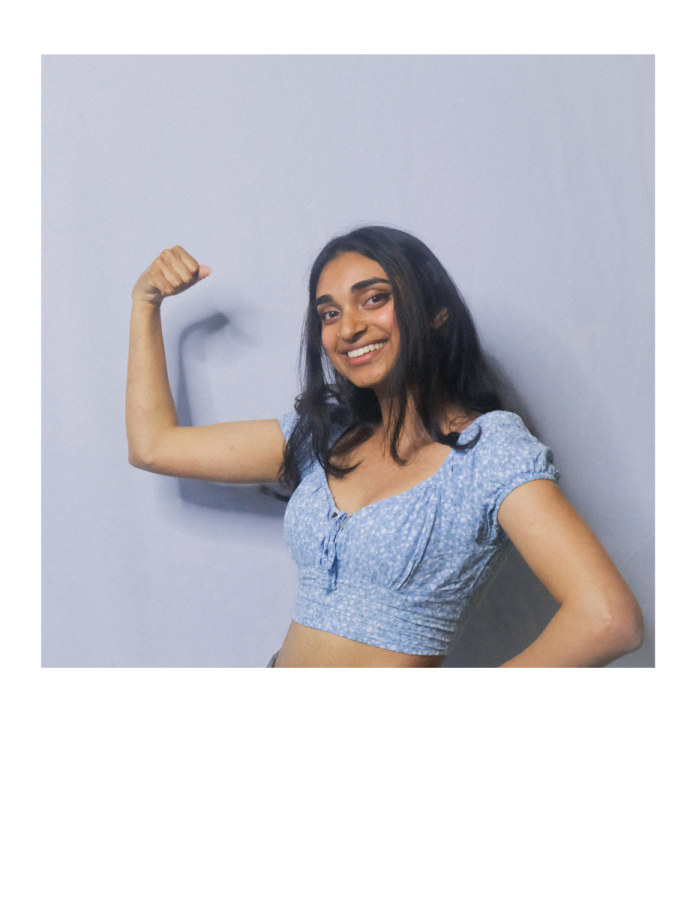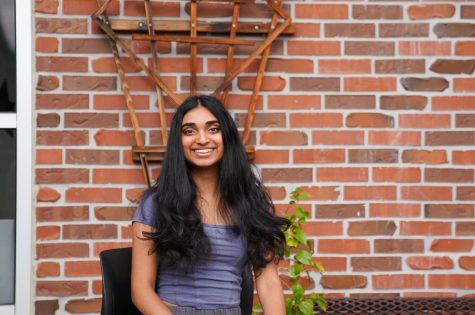From self-sufficiency to self-destruction
Understanding how my obsession with independence led to isolation
June 2, 2023
The first recollection I have of my thirst for knowledge was in kindergarten. Every other day, I would drag my mother with me to the library, whining that I already finished the 30 books I had just checked out a couple of days prior.
“Mom, did you know that your ears never stop growing?” I asked my mom earnestly as she shoved random books from the children’s section into a tote bag, not paying much attention to the content because she knew I’d read it regardless. “Did you know that your nose never stops growing either?”
My mom hummed in affirmation, and though she wasn’t particularly enthused by my vivid descriptions of how earwax is formed, I wasn’t discouraged. I had discovered an unending source of knowledge, and I was determined to learn everything.
Throughout elementary to middle school, I spent hours scouring Wikipedia and Encyclopedia Britannica for random biographies of celebrities who had died centuries prior. I also started picking up random hobbies that I learned about through my excessive consumption of how-to YouTube videos. I learned how to make stamps, sew, knit, crochet, build furniture, replace light fixtures — and furthered my quest to learn how to do, well, everything.
My teachers and parents alike were bewildered by my strange skill set, but I was rewarded for my knowledge through praise from adults around me, who complimented me on being so self-sufficient. I was filled with pride by the notion of being so independent as a child.
My independence was initially confined to being able to do practical tasks as a result of my random and obscure hobbies, but as I grew older, my desire for self-sufficiency gradually pervaded my entire life.
I used my independence as a safety net — if I could do everything myself, I wouldn’t need to rely on others. I took satisfaction in being privy to my friends’ hardships but them never knowing mine. Although it initially made me proud, I began to feel increasingly stifled by the expectation I had set for myself.
When I entered high school, things only got worse. I was constantly frustrated with my inability to resolve my problems by myself. At the same time, I refused to sacrifice my pride and seek help when I struggled with trigonometric concepts or when I had a falling out with a friend, because I couldn’t fathom asking for help when I could just figure it out by myself. Though I managed to power through my freshman and sophomore years, after my first semester of junior year, I just couldn’t function alone anymore.
Under intense academic pressure and strained relationships with my friends and family, years of bottling everything up culminated and rose to the surface. My overthinking kept me awake at night, leaving me barely functioning during the day and unable to keep up with my schoolwork, and midway through the semester, I found myself failing all of my classes except one.
I had no energy to interact with anyone. I stopped talking to my friends and was so, so miserable. My safety net of independence suffocated me, and I was left to deal with the fact that the predicament I was left with was entirely my fault.
Toward the end of the second semester, I completely broke down over the phone with one of my friends as I sobbed for hours. “Something is wrong with me,” I told them. “Something is wrong with me and it’s ruining my life and I don’t know how to fix it.”
Everything I had been suppressing for the past year — navigating my first relationship, struggling with my classes, having increasingly tense relationships with my parents and being closeted in my own home — poured out alongside my tears.
When I was done, I felt awful for not being able to support myself and burdening someone else with my problems. And yet, I felt an undeniable weight off my shoulders, relieved that I wasn’t handling everything alone.
Frankly, it’s ridiculous to think about how my love for learning culminated in destructive self- reliance, but now that I’ve identified the problem, I can go about fixing it. I cannot undo the damage I’ve already caused, but I can work on being more honest and vulnerable. Sometimes, I need to rely on others and ask for help — but now I know that there isn’t anything wrong with that.
Although I’m still learning to not feel guilty about not being self-sufficient, I think the little girl from so many years ago who was just happy to learn for the fun of it would be proud of the person she’s becoming again.


















